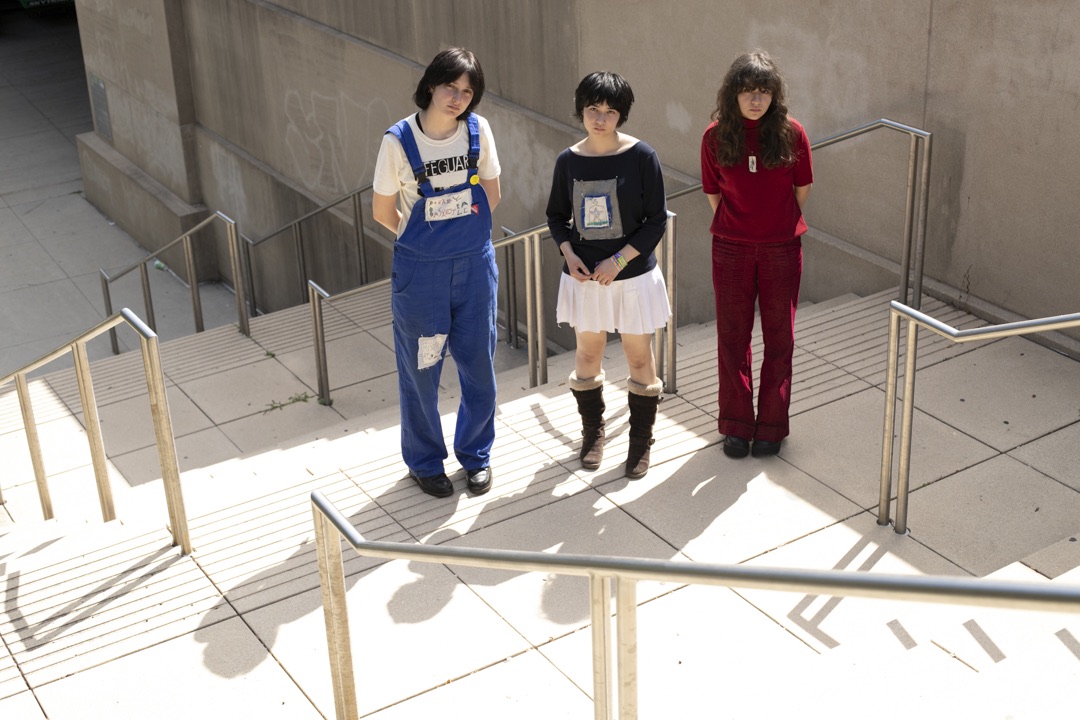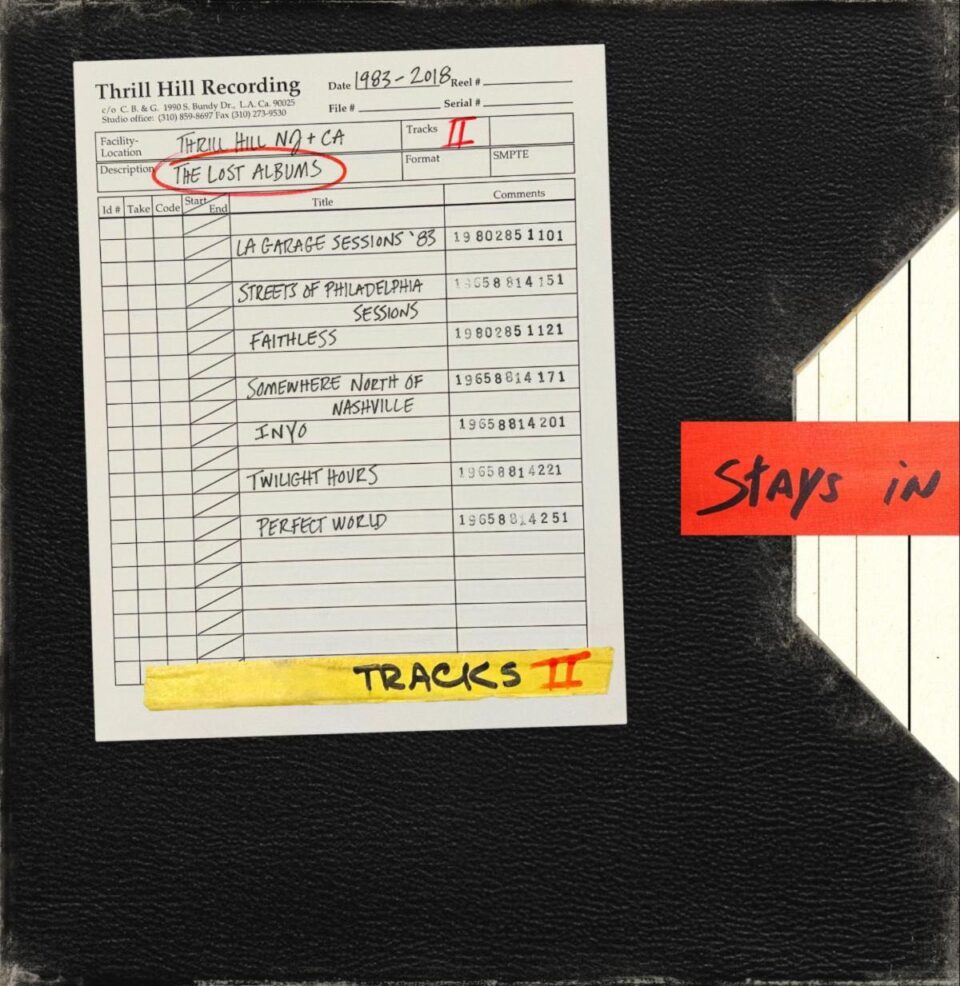“This is the noise of a band!” the Belcher children proudly declare in an episode of Bob’s Burgers. “What’s your band name?” asks their mom. “We’re called The Itty Bitty Ditty Committee.” We’ve heard this exchange before—or one like it. Someone reveals that they play in a band and the first question is invariably, What’s your band called? It’s a logical starting point: our first glimpse at an artist’s principles, their identity.
In the case of Bikini Kill or Pussy Riot, for example, a band name can assert activist intentions before anyone hears a single lyric. It can pay homage to one’s idols; recognize provocative fringe texts or Baseball Hall of Fame center fielders. A moniker can challenge internalized racism; when Michelle Zauner was choosing the name for her project, she wanted to combine something “American” with something people might find “exotic or foreign.” Accordingly, Japanese Breakfast filters out people who immediately assume Zauner is Japanese, as the Korean-American musician has explained.
In other words, a band name can contain multitudes; it can serve multiple purposes. So, what’s with all the horse bands all of a sudden?
One of the most exciting releases of 2022—topping best-of lists and giving Sonic Youth–indebted guitar music a new lease of life—was Versions of Modern Performance, the debut album by a young trio from Chicago. Their band name? Horsegirl. Meanwhile, Cornish surfing instructor Jacob Slater was making waves across the pond with his post-Britpop deluge of jangly guitars and anthemic hooks. He christened this project Wunderhorse. If neither of these rocked your socks, you had your pick of the horse litter: folk supergroup Bonny Light Horseman, fuzz fanatics feeble little horse; not to mention Horse Jumper of Love, Horsebath, Horse Lords, Horsebeach, and just plain old Horsey (and don’t get me started on the ponies!).
It’s curious that these mysterious equines are infiltrating our playlists to such a degree. Is it pure coincidence? A case of keeping up with the Jones’s horses?
This horse/band synergy is not exactly new. In 2016, NME published a quiz that challenged readers to sort the band name from the horse name. And some “horse” bands—such as Sparklehorse, Band of Horses, Foals, I Break Horses, Horse Feathers, and, most straightforwardly, HORSE the Band (to say nothing of horse-core GOATs Crazy Horse)—charged out the gate before the 2020s’ Best in Shows entered the show. Even so, it’s curious that these mysterious equines are infiltrating our playlists to such a degree. Is it pure coincidence? A case of keeping up with the Jones’s horses? Are bands reaching deals with the Devil Horse in which naming rights are traded for musical prowess?
For feeble little horse, an intriguing piece of prose from every college student’s favorite author provided the inspiration. The passage, from Kafka’s The Castle, reads as follows: “The yard gate opened, and a small, flat-bottomed sleigh appeared. It was for carrying light loads, had no seat of any kind, and was drawn by a feeble little horse, behind which the man came into view.” Of course, feeble little horse (the band) sound anything but feeble. Defined by cryptic lyrics and abrupt changes in dynamics, the quartet’s raucous rock music telegraphs a sense of disorientation central to Kafka’s writings.
The band’s guitarist Ryan Walchonski elaborated on how they chose the name: “Sebastian [Kinsler] and I had our first batch of songs that became modern tourism and we were struggling to find a name for the band,” he says. “I saw the phrase in a book called The Castle by Franz Kafka and ran it by Sebastian and that was our name.” OK, this is a pretty open-and-shut case, but it is interesting that the band opted to retain the lowercase spelling, ostensibly out of respect for the author’s original work—or perhaps to kill two trends with one stone (lowercase in point: bdrmm, quinnie, pizzagirl, boygenius, dad sports, and so on).
Another off-the-cuff naming decision was made by Wunderhorseman Jacob Slater. “It was just kind of like a joke, not a great deal of thought went into it,” Slater explained. Like feeble little horse, he made the name his own with an atypical spin: “There’s this old TV show from the ’50s or ’60s called Champion the Wonder Horse, but I’ve spelled mine with a ‘u’ so everyone thinks I’m German. There won’t be any copyright issues there. I mean The Beatles is kind of a shit name, but it didn’t stop them, did it?” Fair point.
Each of our horse bands offers their own inadvertent take on the animal’s allure, its mystery, and its beauty.
Bonny Light Horseman’s name has a richer, more deliberate backstory. Coined in the early 1800s, the term “Lighthorseman” refers to cavalry soldiers; and “bonny”—meaning beautiful—is thus the most esteemed member of said cavalry. But there’s more: “Bonny Light Horseman” is the name of a traditional English folk tune written during the Napoleonic Wars. The song’s been covered by numerous artists, and for a folk supergroup that specializes in reinterpreting historic standards, it’s a worthy designation. “There’s a very short list of bands who have a song that’s also their band name,” said the group’s Eric D. Johnson. “We just thought that song was emblematic of the whole picture.” Bonny even opened their debut album with their own version of the song, its graceful acoustic strums and Anaïs Mitchell’s soulful lilt evoking the animal’s dignified spirit as closely as we’ve seen so far.
After reading explanations directly from the bands, I wondered what the people responsible for bringing them to the masses made of all this. Someone who works closely with artists is Rich Walker, founder of Dalliance Recordings and Strategic Director at 4AD. “I’m going with it being a coincidence—the latest in a long line, with ‘deer’ and ‘crystal’ having had their moments,” he says. “It’s so hard to come up with an original name; there are bound to be moments when artists have similar thoughts. Plus, I think Horsegirl’s name perfectly encapsulates their sound and aesthetic. Perversely, I remember hearing Skullcrusher for the first time and thinking just how brilliant her artist name was for the opposite reason.”
Jamie Coletta, manager of acts including Bartees Strange and PR extraordinaire at No Earbuds, is in agreement. “A lot of these bands have been around for a while but are just now getting their due spotlight, so I do think it’s pure coincidence,” she muses. “I’m honestly not sure why it’s resonating so much more right now, though; maybe just a byproduct of time and a whole generation of us who grew up as ‘horse kids’—I’m not claiming to be one,” she laughs, “I just know that’s a whole thing—now being adults with jobs who can influence things in our own communities.”
Besides generating a great new band name (Horse Kids—wait, no, horse kids), Coletta and Walker make great points about the impermanence of trends. Each of our horse bands offers their own inadvertent take on the animal’s allure, its mystery, and its beauty: Horsegirl’s enigmatic DIY art; Bonny’s commitment to bygone ballads; Horse Jumper of Love’s surrealist spin on slowcore. But making direct comparisons between them is futile; things lose their magic when you pin them down and try to analyze them. So while we wait and see which animal, mineral, or verb form is next in line for band-name glory, let us abide by the words once sung by Echo & the Bunnymen: “Bring on the dancing horses / Wherever they may roam.” FL









